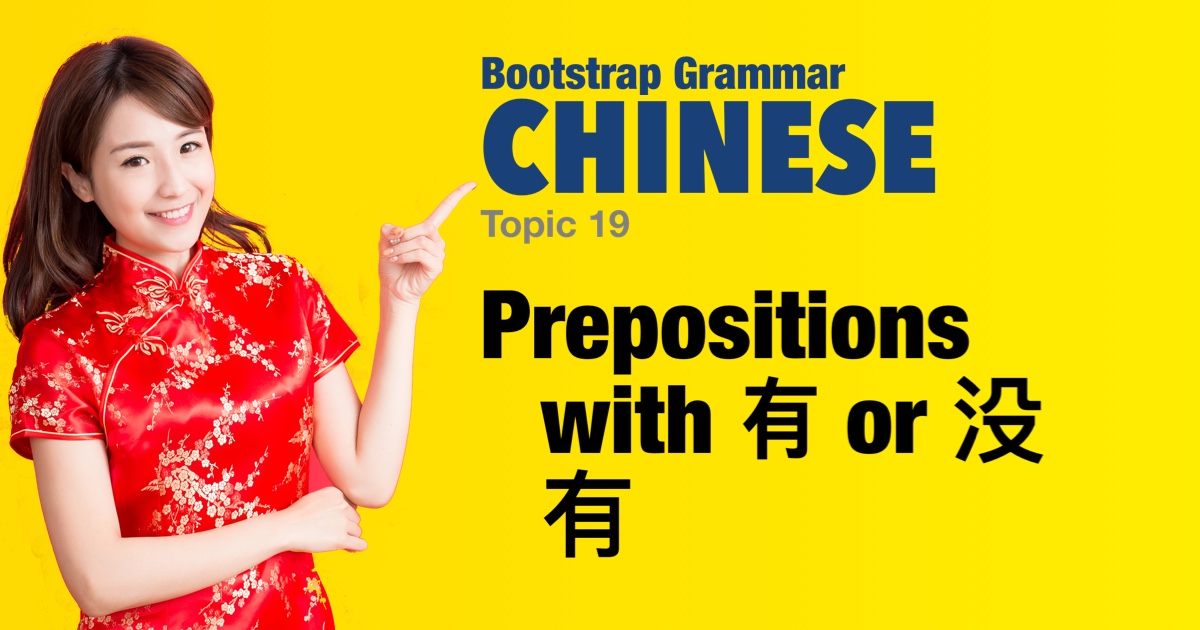Chinese grammar - Prepositions with 有 or 没有 |
|||
|
|||
In Chinese, using prepositional verbs like 在 (zài) is often unnecessary when there is already a verb - other than 是 (shì) - in the sentence. For instance when the principal verb in the sentence is 有 (yǒu) or 没有 (méi yǒu) then simple prepositions should be used. These simple prepositions include: • 里 (lǐ) means 'in', 'inside' or 'within' • 上 (shàng) means 'on', 'above', 'over' or 'up' • 下 (xià) means 'under' Note that, unlike in English, these prepositions come 'after' the noun to which they refer. |
| Examples: | |
|
公园里有一只猫。
gōngyuán lǐ yǒu yì zhī māo. There is a cat in the park.
|
|
|
学校里没有学生。
xuéxiào lǐ méi yǒu xuéshēng. There are no students in the school. |
|
|
包里没有钥匙。
bāo lǐ méi yǒu yàoshi. There are no keys in the bag.
|
|
|
桌子上有一杯咖啡。
zhuōzi shàng yǒu yì bēi kāfēi. On the table there is a cup of coffee.
|
|
|
车里没有人。
chē lǐ méi yǒu rén. There is no one in the car.
|
|
|
房间里有一张床。
fángjiān lǐ yǒu yì zhāng chuáng. In the room there is a bed.
|
|
|
桌子下有一只猫。
zhuōzi xià yǒu yì zhī māo. There is a cat under the table.
|
|
|
床下有一只狗。
chuáng xià yǒu yì zhī gǒu. Under the bed there is a dog.
|
|
|
桥下有一条河。
qiáo xià yǒu yì tiáo hé. There is a river under the bridge.
|
|
|
教室里没有老师。
jiàoshì lǐ méi yóu lǎoshī. There is no teacher in the classroom.
|
|
|
书架上没有笔。
shūjià shàng méi yóu bǐ. On the bookshelf there are no pens.
|
|
|
公园里有多少人?
gōngyuán lǐ yǒu duōshǎo rén? How many people are there in the park? |
|
|
家里有多少孩子?
jiā lǐ yǒu duōshǎo háizi? How many children are there in the family? |
|
 |
|




